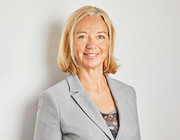Ignoring reality is sometimes tempting, but not a wise option. Christiaan Banard, the South-African surgeon who performed the world’s first human-to-human heart transplant operation, once said, “If I make a mistake and I don’t admit it honestly and openly to myself, then a human being will die at the next surgery. One has to face reality.”
The world as we face it today, is not a pretty sight – shaken by a number of crises, ranging from war, an ongoing pandemic to economic turbulences and an increasingly threatening scenario due to climate change. It is a torn world, with strained or shattered relations, enormous challenges of high complexity. Where do we go from here?
Facing reality means not to waste a crisis. Already 2,000 years ago, the Romans realized that they needed a set of rules in order to organize their society and to protect the rights of the citizens. Due to the growing empire and increased interaction with non-Roman people, a kind of trade law was established. The Roman legal doctrine has served as the basis for the legal systems as we know them today, especially in Europe. However, the balance between individual freedom and violation of someone else’s rights seems increasingly challenged – on an individual basis as well as with regard to relations between nations.
However, in order to establish or develop rules, trust and a mutual understanding is necessary to successfully negotiate a framework for our living and working together. Achieving the same understanding of facts and ramifications is a basic prerequisite for a constructive dialogue. Already at this early stage, dissent is evident; we need to establish a new culture of conversation in order to overcome misinformation, mistrust and disconnection.
In democratic societies leaders are expected to explain their governance in order to gain understanding and commitment. Rules are fundamental to achieve a peaceful coexistence between individuals. But how can we deal with dictatorship, building up own and individual beliefs that determine actions without considering the rules once agreed upon? How can we reverse to an agenda of respect, reliability and mutual understanding to manage our global community sustainably?
This year’s Trilogue Salzburg will deal with the issue of how to strengthen respect, reliability, and mutual comprehension to resume a fact-based and issue-related dialogue that is essential to discuss and agree upon common rules. Thus, the following questions are up for debate:
- How can we build trust in order to regain peace and free movement of people and goods on a global scale?
- As the concept of free democracies is in decline worldwide: Why do so many citizens value their national identity higher than their individual liberty?
- What are possible incentives for a cooperative global system?
- How can we achieve commitment to international rules other than by the threat of sanctions?
These questions will be addressed from various perspectives in a series of background papers. Additionally, an overarching paper will distill the main topics and findings from the background papers in order to promote a lively discussion at the Trilogue Salzburg. The Trilogue Salzburg will be held as a hybrid event this year. In addition to on-site participation in Salzburg, online participation will also be offered.





